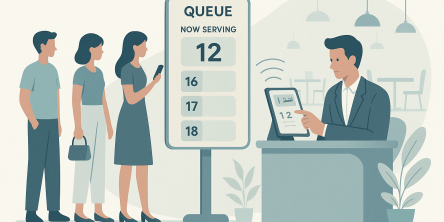How Test Automation for CRM Development Works?

It is critical for an employee to complete their task on time in order to maximize their productivity. However, if the quality of your work is not up to the greatest standards, it will have a detrimental impact on your overall productivity. When you provide a product or service to a customer on time and they are not content with it, you may have to make or re-do it, or worse, the client may refuse to accept your work. In both circumstances, the time and effort you put into the task are rendered in vain, and your productivity suffers as a result of your efforts. In order to increase productivity, one of the most crucial aspects is to produce high-quality work.
Every piece of software has to be tested carefully before it enters the market. To do differently would be to risk everything from small problems to significant security issues. But the pressure is on to get the software to market quicker than ever and to provide more regular upgrades to your web and mobile applications to stay up with client demand. That’s why many firms depend on quality assurance (QA) automation to regularly test their software more efficiently and more often than human testers can.
QA automation is the term used to describe the process of employing a separate piece of software to conduct tests on the program that is being developed. Prior to the advent of technology, human testers were required to conduct many of these jobs individually, with the assistance of some technology to lessen the amount of repetition.
However, automated testing can take care of many of these jobs completely, and it can even do more complicated tests that would be impossible to execute manually.
How CRM can identify and fix test automation issues?
It is possible to assure high-quality work by subjecting your work to regular and severe evaluation. It is critical to produce high-quality work by critically examining your own work, recognizing faults, and addressing them as soon as possible. If, on the other hand, errors go undiscovered or are thrown under the rug, they will eventually come back to haunt you and have a significant influence on your productivity.
What Information Can CRM System Testing Provide?
It might be tough to know how to properly express the quality of work during a performance evaluation. You want to assist your staff in improving their performance without making them feel anxious or defensive. It is your responsibility to deliver constructive criticism and your employee's responsibility to listen unless everything is flawless and there is no opportunity for growth. Planning your review properly and being cautious in how you express yourself may result in increased performance from your employee as well as a more productive working relationship between the two of you in the long run. Microsoft CRM development system testing may identify possible flaws in CRM software, allowing businesses to enhance the overall quality of their program. Let's look at the most important challenges here:
1. User Adoption Is Low
Users' poor adoption of CRM software is one of the most prevalent challenges seen, which suggests that the program does not have enough functionality to provide a good user experience. Staff members struggle with issues such as improper client categorization, erroneous or missing customer data, and a poorly designed user interface. These flaws make it difficult for sales, customer support, and marketing professionals to make the most of the customer relationship management system.
2. Unsatisfactory Customer Service
When you don't have enough information from your consumers, it might drastically limit your staff's capacity to handle the problems that they are experiencing. At the same time, untimely or missed reminders of customer appointments cause statistics on returns and complaints to be inaccurately reported.
Furthermore, difficulties such as delivery delays caused by misinterpretation in emails and inaccurate payment, sales, or delivery status have an impact on the management of client relationships. As a result, problems in the CRM system continue to cause dissatisfaction among your customers.
Customer Management Visibility Is Inadequate
Some customer relationship management systems (CRM) give personnel erroneous, inconsistent, and insufficiently adjusted data as a result of incorrect data computation or categorization. Additionally, this might occur when there is a lack of interaction between various ERP modules, such as document management, finance, and data warehousing.
As a consequence of these flaws, managers have a distorted view of their clients, which makes it difficult to make strategic choices. During this time, your rivals are using reliable CRM data to establish realistic sales objectives and quotas for themselves. As a result, businesses that have inadequate customer relationship management systems are always at a competitive disadvantage.
What is the significance of CRM testing?
Do you need a solution that can simplify corporate procedures and combine departments into a single platform?
Do you need the synchronization of corporate apps in order to provide a comprehensive picture of your customers?
Is it critical for your business that your staff utilize the CRM system effectively and enter accurate information?
Do you wish to provide your customers with an excellent experience?
Do you want to live a more comfortable lifestyle?
CRM testing has an impact on all sectors
If you are in the business of selling anything, chances are you are using a customer relationship management system. Organizations prosper when customer relationship management systems (CRM) integrate seamlessly with business procedures and enterprise applications to create a first-class customer experience. Integration of systems and departments, such as warehouses, customer service, sales, and operations, is necessary for complex processes to be successful. CRM testing is essential for determining whether or not these systems are properly processing important customer data and supporting corporate goals, among other things.
A CRM Testing Solution in the BFSI Industry: What It Is and How It Works
In the BFSI industry, a customer relationship management (CRM) system is often used for customer onboarding, customer data maintenance, and customer service requests management, and it gives a comprehensive perspective of the client. A customer relationship management (CRM) system, at its heart, assists banks in using customer data for marketing and sales operations. A customer relationship management system (CRM) may improve the customer experience at every stage, from conducting a campaign and generating leads to allocating and converting leads.
Customer onboarding and data management, on the other hand, maybe time-consuming processes. Know Your Customer (KYC) regulations include complicated processes that must be followed, and compliance requirements change on a regular basis. In addition, the work of integrating the CRM system with other systems might be difficult to complete. The BSFI industry needs a CRM system that is both efficient and dynamic in order to deal with these developments.
The Overall Importance of CRM Testing
CRM systems are becoming an increasingly important aspect of a bank's operations. Having interfaces with a variety of data sources, client service solutions, and reporting databases, they are able to collect and handle massive amounts of information. CRM solutions are often hampered by the fact that current IT systems are in a perpetual state of change. With the frequency with which CRM systems are altered and modified, it becomes necessary to test CRM systems on a regular basis. Microsoft CRM development for a variety of sectors may provide a number of advantages that are critical for any company's success. All of these features, as well as other productivity tools and apps, are seamlessly linked to helping firms make better, more responsive, and more informed choices.
The issue here is that it does not accurately portray a real-life scenario. If you're building on a single virtual machine, this is especially significant since development on a single virtual machine will disguise any connection and firewall challenges that you could have, such as when connecting an external program to CRM. Microsoft Dynamics custom development, as well as Microsoft Dynamics consultants and Microsoft CRM developers, are in high demand nowadays. A human approach or an automated solution may be used to carry out the CRM testing activity. Because of the time and effort required to manually test CRM software when it is updated or transferred from legacy systems, it is becoming more difficult and time-consuming. The mistake rate also increases in a short period of time, having an impact on the many tasks of the company. Using automation to streamline the CRM testing process is the most appropriate answer.
Similar Articles
When people are hungry, standing in line for a table feels tiring and unpleasant. In fact, research shows that most individuals will just walk away if they have to wait longer. They will go and find another place to eat.
In the early stages of designing new community centers, fire stations and administration buildings, city planners and architects are forced to make a crucial decision: What building material is best suited for providing the most value, safety and longevity to the public?
Amazon Simple Queue Service (SQS), Simple Notification Service (SNS), and EventBridge are just a few of the messaging services that AWS provides to meet various demands when it comes to creating scalable and effective cloud systems.
Wearable technology, embracing devices small enough to be worn unobtrusively, constitutes a market that keeps expanding, and the momentum shows little sign of slowing
For job seekers, grasping the basic functions of Applicant Tracking Systems (ATS) is the first step in overcoming common job search barriers.
In the highly regulated world of pharmaceutical manufacturing, inventory management is far more than just tracking stock levels. It’s a critical component of ensuring product safety, quality, and compliance with current Good Manufacturing Practices (cGMP)
Find a reliable sealing technology with these 7 tips on quality, materials, certifications, and scalability to ensure lasting performance in your industry.
These days, your business depends on strong telecom systems and well-built software to stay ahead. Whether you’re launching a digital product or improving your communication tools, choosing the right team to work with makes a big difference.
Sometimes it seems like walking on a tight-rope when it comes to talking openly in team chats.









